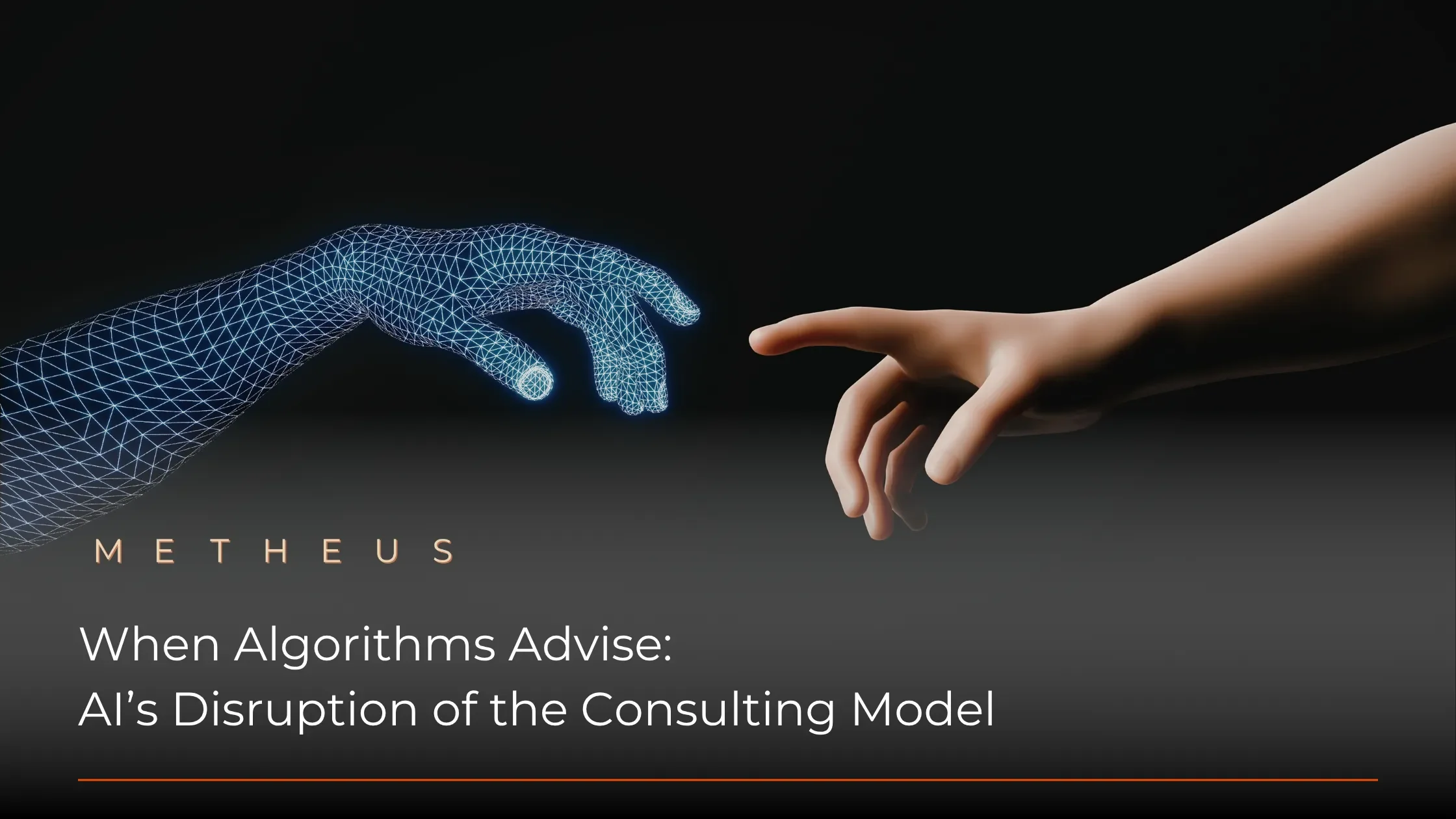When Algorithms Advise: AI’s Disruption of the Consulting Model
In October 2025, Deloitte Australia found itself at the centre of controversy when it was revealed that the firm had charged the Australian federal government AUD $440,000 for a report largely written using artificial intelligence tools. The revelation, which sparked public backlash and parliamentary inquiry, has become a cautionary symbol of the consulting industry’s uneasy transition into the AI era.
While Deloitte maintained that AI was only used to “accelerate document drafting,” critics argued that the fee reflected outdated billing models rather than genuine value creation. The episode has ignited a broader debate: how will consulting firms justify their fees, structure their teams, and define their value proposition in a world where machines can generate analysis, reports, and even strategic recommendations in seconds?
This case is far from isolated. Across the consulting world, AI is automating core activities once reserved for human consultants—data gathering, benchmarking, scenario modelling, and even client communication. Firms like McKinsey, BCG, PwC, and Accenture are racing to integrate generative AI and agent-based systems into their service models, promising faster delivery, deeper insights, and scalable expertise. Yet, as the Deloitte scandal illustrates, transparency, accountability, and ethical governance must evolve just as quickly as the technology itself.
The Changing Role of Consultants & the Value Chain Shift
For decades, the consulting value chain relied on the classic pyramid model — armies of analysts collecting data, mid-level consultants synthesising insights, and partners delivering polished slides to executive boards. AI is dismantling that hierarchy at astonishing speed.
Today’s consulting workflows are becoming flatter, faster, and more networked. Tasks once requiring days of junior labour — market scans, competitor benchmarking, or even financial scenario modelling — are now being executed by AI copilots trained on domain-specific data. This change is not merely a productivity gain; it is a structural redefinition of what consulting work means.
From Assistants to Autonomous Agents
The first wave of consulting AI tools acted as copilots: summarising documents, formatting slides, and drafting reports. The new generation goes further — autonomous multi-agent systems capable of coordinating tasks, validating assumptions, and generating strategic insights.
Internal AI tools now handle some part of early-stage analysis and document preparation. BCG’s own proprietary assistant, “Deckster,” drafts initial client presentations from structured datasets within minutes, while McKinsey’s internal “Lilli” platform uses generative AI to retrieve, summarise, and contextualise past project learnings for consultants globally.
Even more transformative are the AI agents emerging inside consulting ecosystems. PwC’s new Agent OS (launched in March 2025) connects multiple specialised AI agents under a shared governance layer. These digital collaborators can autonomously exchange data, validate assumptions, and suggest strategic scenarios, leaving human consultants to interpret implications and align recommendations with client context.
Process Mining + AI in Operations
Beyond document generation, AI is embedding itself directly into process optimisation and operational analytics.
A notable 2025 study describes an insurance-industry case where object-centric process mining was combined with AI to automate claim-part identification across tens of thousands of records. By learning from both event logs and relational data, the system detected anomalies and optimised workflows without manual rule-setting.
This hybrid of process mining + AI reasoning is now being replicated by consulting firms for supply-chain audits, procurement analytics, and healthcare service mapping — enabling consultants to offer data-validated efficiency gains rather than anecdotal recommendations.
Real-World Government Examples
AI’s influence on consulting is not limited to private-sector transformation. Around the world, governments are beginning to internalise advisory capabilities once outsourced to major consulting firms, signalling a structural shift in how public policy, analysis, and stakeholder engagement are executed.
The UK Government’s “Consult” Platform
In May 2025, the UK government unveiled “Consult” — an AI-driven platform designed to automate the analysis of public consultation feedback across government departments.
Traditionally, large-scale consultations relied heavily on external consulting firms for data synthesis, sentiment mapping, and policy summarisation. Consult now performs these tasks autonomously — scanning thousands of submissions, clustering key issues, and generating structured summaries in a fraction of the time.
The initiative reflects a strategic move toward digital sovereignty: the UK government is not only adopting AI for efficiency but also deliberately reducing dependency on external advisory providers.
A Broader Policy Shift: Governments as Their Own Consultants
This shift is part of a broader pattern across OECD nations. Canada is positioning itself as a “government AI lab” through a new G7-level program and open collaboration, developing public-sector AI applications and open tools. Singapore’s GovTech actively builds and deploys data science and AI tools to support internal government agencies, enable cross-agency analytics, and improve policy and service delivery.
For the consulting sector, this evolution carries a clear message: the future of public-sector advisory will be hybrid — where consultancies partner with, rather than replace, government AI systems.
Firms that can design interoperable tools, provide model governance expertise, and ensure algorithmic transparency will remain indispensable as public administrations increasingly operate their own digital think tanks.
Conclusion
Between 2024 and 2025, the consulting industry crossed a historic threshold. What began as experimental use of generative tools has matured into a full-scale redefinition of value creation. AI no longer simply supports consultants — it performs, learns, and co-creates. Firms are being challenged to prove their worth not through deliverables, but through measurable outcomes and continuous transformation.
At Metheus Consultancy, we see this not as a threat but as the next frontier of consulting excellence. Our work sits at the intersection of human strategy and machine insight — helping organisations reinvent how they operate, monetise, and grow in AI-defined markets. Whether advising on market expansion, operational analytics, or AI governance, our mission is clear: to turn disruption into design, and automation into advantage.
To explore how your organisation can evolve its business and operating model for the AI era, contact us — and let’s build what’s next, together.
References:
https://www.ft.com/content/934cc94b-32c4-497e-9718-d87d6a7835ca
https://www.mckinsey.com/about-us/new-at-mckinsey-blog/meet-lilli-our-generative-ai-tool
https://www.businessinsider.com/pwcs-launches-a-new-platform-for-ai-agents-agent-os-2025-3
https://www.theguardian.com/technology/2025/may/14/uk-government-ai-consult-consultation
https://thelogic.co/news/canada-wants-to-be-the-worlds-government-ai-lab

